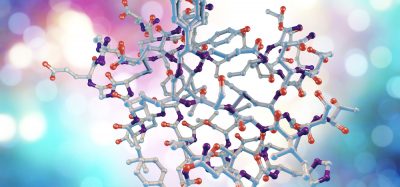50 year old blood pressure drug offers alternative treatment for PTSD
Posted: 5 January 2023 | Izzy Wood (Drug Target Review) | No comments yet
US scientists offer a new purpose for the blood pressure drug clonidine as a treatment to reduce the affects of PTSD.


Scientists at the Medical College of Georgia at Augusta University, US, have new evidence that a 50 year old blood pressure drug could find new purpose as a treatment to mitigate the affects of increasingly prevalent PTSD.
Clonidine is commonly used as a medication for high blood pressure and ADHD. It has also already been studied in PTSD, as clonidine works on adrenergic receptors in the brain, likely best known for their role in “fight or flight”.
These receptors are thought to be activated in PTSD and to have a role in consolidating a traumatic memory. Clonidine’s sister drug: guanfacine, also activates these receptors.
The study’s findings, published in Molecular Psychiatry, suggest that clonidine could provide immediate treatment to the significant number of people emerging from the current pandemic with PTSD, as well as from longer-established causes like wars and other violence.
The researchers looked at genetically modified mice as well as neurons that came from human stem cells, which have the capacity to make many cell types.
In the hippocampus, they found that a novel axis on an adrenergic receptor called ɑ2A, is essential to maintaining fear memories in which you associate a place or situation, emotions that are hallmarks of PTSD.
In this axis, they found the protein: spinophilin, interacts with cofilin, which is known to control protrusions on the synapses of neurons called dendritic spines, where memories are consolidated and stored.
A single neuron can have hundreds of these spines which change shape based on brain activity and whose changing impacts the strength of the synapse, the juncture between two neurons where they swap information.
The scientists found clonidine interferes with cofilin’s exit by encouraging it to interact with the receptor which consequently interferes with the dendritic spine’s ability to resume a mushroom shape and retain the memory. Guanfacine, on the other hand, had no effect on this key player cofilin.
In fact, when mice got both drugs, the guanfacine appeared to lessen the impact of clonidine in the essential step of reconsolidating — and so sustaining — a traumatic memory, indicating their polar-opposite impact at least on this biological function/
In their studies that mimicked how PTSD happens, mice were given a mild shock then treated with clonidine right after they were returned to the place where they received the shock and should be recalling what happened earlier.
Clonidine-treated mice had a significantly reduced response, to untreated mice when brought back to the scene. Their response was more like the mice who were never shocked. Guanfacine had no effect on freezing behaviour.
Dr Qin Wang, neuro-pharmacologist and founding director of the Programme for Alzheimer’s Therapeutics Discovery at MCG, said they cannot know for certain how much the mice remember of what previously happened, but clearly those treated with clonidine did not have the same overt reaction as untreated mice or those receiving guanfacine.
“The interpretation is that they don’t have as strong a memory”.
Adrenergic drugs like clonidine bind to receptors in the central nervous system to reduce blood levels of the stress hormones you produce like epinephrine (adrenaline) and norepinephrine, which do things like increase blood pressure and heart rate.
PTSD has emerged as a major neuropsychiatric component of the COVID-19 pandemic, affecting about 30 percent of survivors, a similar percentage of the health care workers who care for them and an estimated 20 percent of the total population, Wang added
The lack of approved drugs has led to off-label uses of drugs like clonidine for the treatment of PTSD.
Related topics
Drug Repurposing, Neurons, Neurosciences, Targets, Therapeutics
Related conditions
Post-traumatic stress disorder (PTSD)
Related organisations
Medical College of Georgia at Augusta University
Related people
Dr Qin Wang








